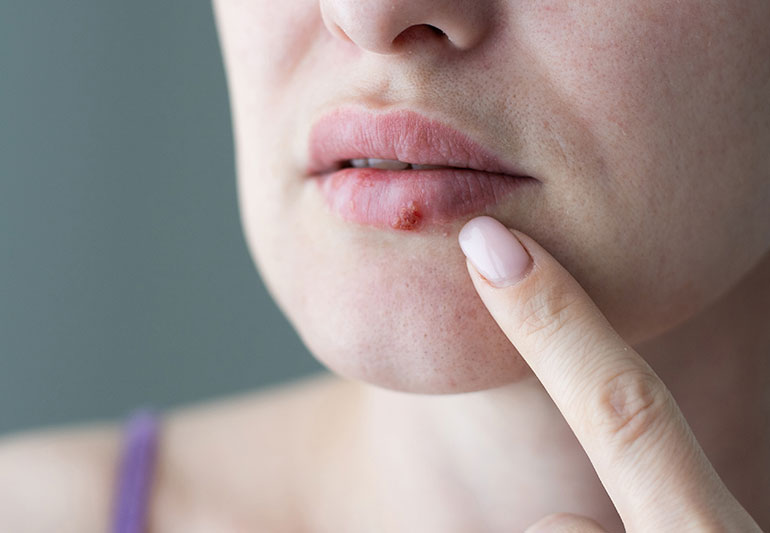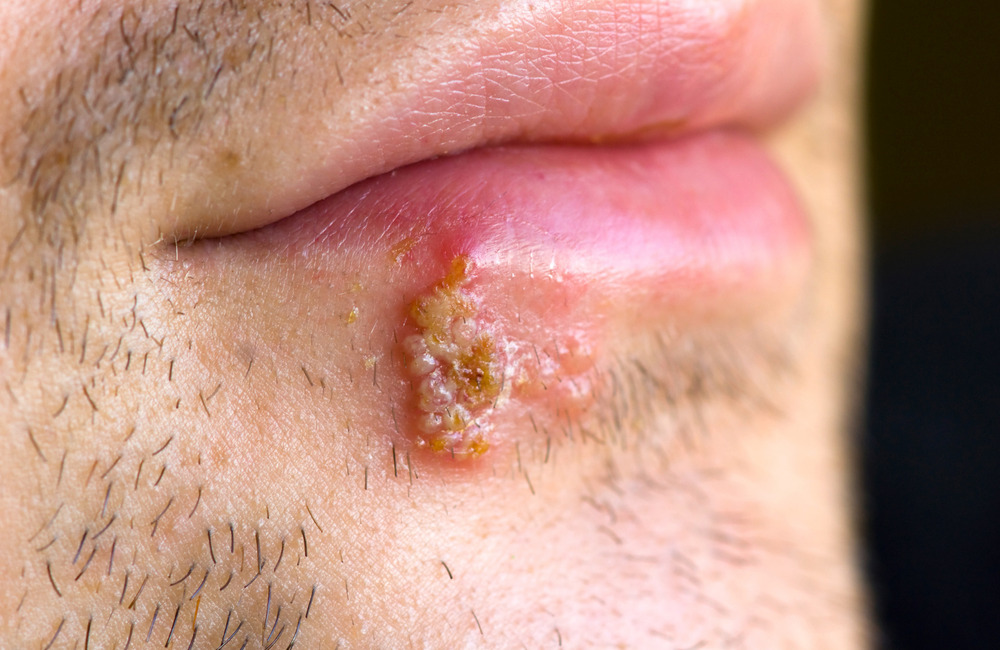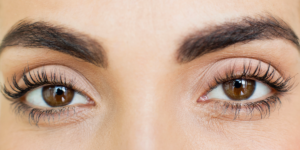
Sexually active people can get genital herpes, a common sexually transmitted disease (STD). This blog will answer basic questions about genital Herpes and oral herpes treatment.
Herpes is a very common infection that is passed through skin-to-skin contact. Most adults have been exposed to herpes simplex type 1 (HSV-1), which usually appears as cold sores in the mouth. It can also cause genital Herpes. Type 2 (HSV-2) transfers through sexual contact and causes genital herpes.
What is oral Herpes?
HSV-1 often gives rise to oral herpes, which can cause cold sores or blisters on or around the mouth. However, a lot of people with oral herpes do not show symptoms. Most people with oral herpes get this infection from saliva during childhood or young adulthood (nonsexual contact). Consult your doctor for treatment of oral Herpes. You may be prescribed herpes medication to get rid of the condition.
What is genital Herpes?
Genital herpes is a sexually transmitted virus. It is common in both men and women in the US. Many people with genital herpes don’t know they have the condition because there are often no symptoms. If you develop symptoms, you most commonly get painful blisters and sores. You can transmit genital herpes to others without even knowing it. Genital herpes has no cure, but there are treatments for symptoms. This does not usually cause serious health problems.
Is there a link between oral Herpes and Genital Herpes?
Yes, there is an association between genital herpes and oral herpes, as oral herpes caused by HSV-1 can spread from the mouth to the genitals through oral sex. This is why some cases of genital herpes are due to HSV-1.
How is genital herpes spread?
You can get genital herpes by having oral, vaginal, or anal sex with an infected person. You can get the virus if you have the following:
- A herpes sore
- Saliva from a person who has an oral herpes infection
- Genital fluids from a partner who is infected with genital herpes infection
- Skin in the oral area/genital area if an infected person with oral herpes/genital Herpes
One can also get genital herpes from a sexual partner who does not have a visible sore or is unaware of the infection. There are also chances of genital herpes if you engage in oral sex from a sexual partner who already has oral herpes.
You will not get the infection by sharing toilet seats, bedding, or swimming pools. You will not get infected by only touching objects like soap, towels, etc. If you have more questions about the condition, consider discussing your concerns with a healthcare specialist.
How to know if you get infected with genital herpes?
Many people with genital herpes show no symptoms or have very mild symptoms. Mild symptoms of the conditions often go unnoticeable or be mistaken for other skin problems like acne or ingrown hair. This is the reason why most people get unaware of the fact that they are suffering from herpes infection. Herpes sores usually develop as one or more blisters on or around the mouth, rectum, or genitals. These blisters are painful sores that may take up to a week or more to heal. Herpes sores are often accompanied by flu-like symptoms such as fever, swollen glands, or body aches.
People who have an initial outbreak of herpes can have repeated outbreaks, especially if they are suffering from HSV-2. However, repeat outbreaks are usually short-term and less severe than initial outbreaks. On the other hand, genital herpes is a lifelong condition, and the number of outbreaks may decrease over time. Speak to your doctor if you notice any symptoms or if your partner has symptoms of an STD. Symptoms of an STD include an unusual sore, burning, smelly discharge, peeling, or bleeding between periods.

How to prevent genital Herpes
Not engaging in oral, anal, or vaginal intercourse is the sole method to prevent STDs. Additionally, if you engage in sexual activity, you should always use condoms appropriately. having a long-term connection with someone who is herpes-free.
It’s crucial to remember that not every herpes sore that forms can be covered by a condom. The virus can occasionally be released from regions without obvious herpes lesions by shedding skin. Condoms can not be completely effective in preventing a herpes infection in some situations.
If your spouse has genital herpes, you can lower your risk of contracting it by doing the following:
Your companion consistently receives treatment for genital/oral herpes.
Do not engage in any sexual activity whenThere is an outbreak in your companion.
What is the association between genital Herpes and HIV?
Herpes provides a way for human immunodeficiency virus, or HIV enters the body. Even if there are no visible sores, there is an increase in the number of immune cells in the lining of the genitals. HIV targets immune cells to get entry unto the body. Being infected with both genital Herpes and HIV increases the chance of spreading the virus to an HIV-negative partner during oral, anal, or vaginal sex.
Maintaining a low viral load can be achieved by taking HIV drugs as directed. Your HIV treatment is effective if the tests show a decrease in your viral load. Anti-HIV drugs should not be skipped as this allows HIV to spread quickly. If you have HIV, treating genital herpes is difficult. Treatment for herpes requires higher doses of HIV medications. See your doctor about your choices for treating herpes and HIV if you already know you have both conditions. Drugs that prevent HIV infection in addition to treating herpes may be prescribed by your doctor.




